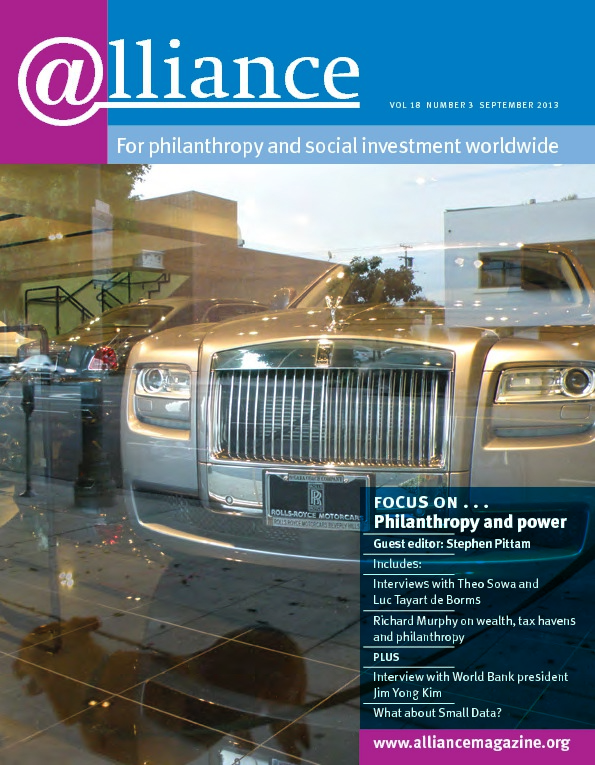The ten expert authors of Slow Investing: How your money can transform the world may have been consciously writing their treatises on the new uses of money just as the ‘Occupy Wall Street’ movement was attracting headlines around the globe. If you were lucky enough, as I was, to attend any of the open discussion groups outside St Paul’s Cathedral by the Occupy protestors in London in 2012, the questions this book asks and some of the answers it provides respond directly to the critics’ traditional side-swipe ‘they know what they are against, but can they answer me – what are they for?’
John Bloom, the editor of this smart, tight collection of essays, presents a vision for a new use of money that is people-centred but works – as RSF Social Finance and Triodos Bank can happily testify. The essay’s authors – Woody Tasch, John Fullerton, Mark Finser, Peter Blom and Don Schaffer, to name a few – are a roll call of the best thinkers in the social investment sector.
Much use is made of analogies with the ‘slow food’ movement: knowing what you eat is about knowing the farming production systems and how it gets to your plate. Bloom challenges the book’s readers to reclaim money in the same way. ‘As long as money accelerates around the planet, divorced from where we live,’ argues Tasch, ‘… as long as the way we invest is divorced from how we live and how we consume, our befuddlement will continue.’ Slow money, argue the authors, is ‘about building lasting and meaningful relationships and community’.
More than one of the authors − particularly Leslie Christian, former CEO of Portfolio 21 Investments − asks the reader to challenge all their assumptions about how markets work and what is measured or counted. Bloom notes that what tends to hold all of us back – particularly, in my view, financial professionals – is that ‘belief systems, politics and religion have all intervened in the money world’ and that ‘mixing money and spirit has always presented a special challenge’. John Bloom quite rightly points out that as the financial crisis is still playing out, ‘the idea that human values and financial value can actually be in common cause as a real practice has recently arisen again …’. Christian writes smartly about concepts explored by think-tanks such as the New Economics Foundation about whether growth will mean the end of the economy. He draws links between the desire of asset owners such as pension funds to consider the future and be long-term investors with the slow money agenda.
Slow Investing is a welcome addition to the discussion about the wise use of money – but how does it help us understand the society in which we live? John Fullerton’s chapter asks how we should rewrite Andrew Carnegie’s Gospel of Wealth and proposes to rename it the Universal Purpose of Capital. He sets out nine guiding principles for the administration of wealth in the 21st century, ranging from how to use surplus wealth to thinking in decades not years (certainly not quarters) and recognizing complexity in financial systems.
I found little in this book to disagree with and much to admire and be inspired by. But what I missed was an understanding of how social change movements through history have often produced corresponding financial institutions – think of the early days of the building society movement, where citizens saved together to enable each other to build and buy their own homes; or friendly societies, credit unions and savings and loans societies. These social finance welfare bodies required the mobilization of citizens. I’m missing a connection with the broader politics in society and how the slow money movement can build and mobilize today’s citizens in the same way. As someone who has attended a Triodos Bank AGM and seen dynamic citizens in action, I know it’s there – it would be great to have had an essay looking at this, drawing parallels with earlier citizen movements.
The other chapter I would have liked to see is a reflection on the absence of (surplus) money in a broad swathe of society. As money has got ‘faster’, its distribution is growing more unequal, with the wealthiest in society accumulating a greater share of the available wealth while those at the bottom are in the hands of money lenders or have no access to the banking system (let alone savings). As Mark Finser writes, relationships are our greatest asset, even if we have no money. The slow money movement has an even greater challenge, which is how to create a just money system that is more inclusive, as well as being a sounder alternative to what we have at present.
Mark Campanale is founder of the Social Stock Exchange and adviser, Halloran Philanthropies. Email mark@campanale.co.uk
To order
http://holisticcornerstore.com/Slow-Investing.aspx
Slow Investing: How your money can transform the world
John Bloom (ed) LILIPOH Publishing Inc $15
ISBN 9780985482138





Comments (0)